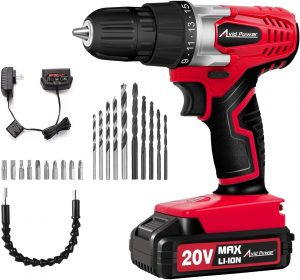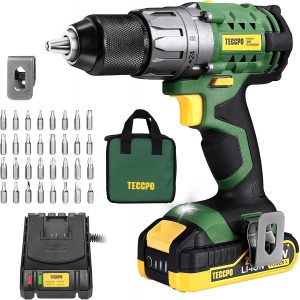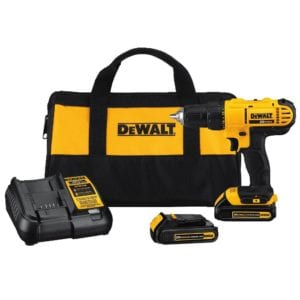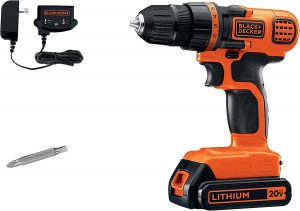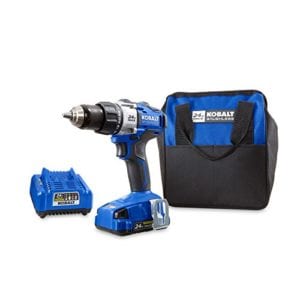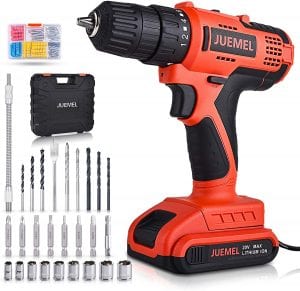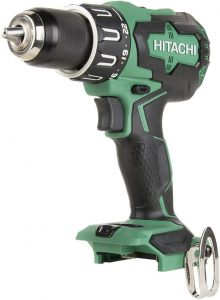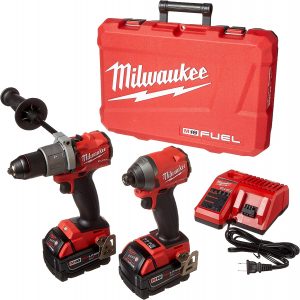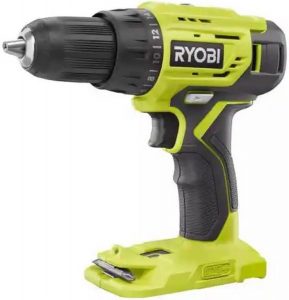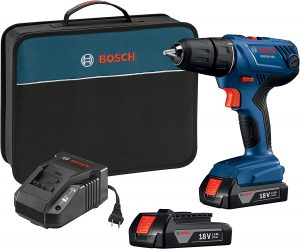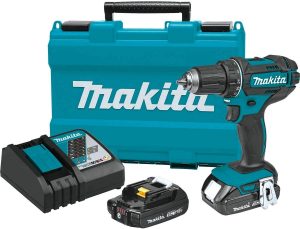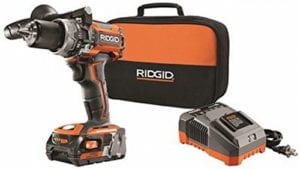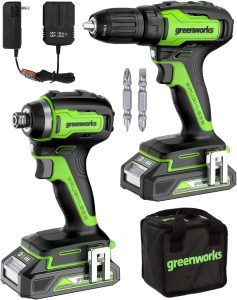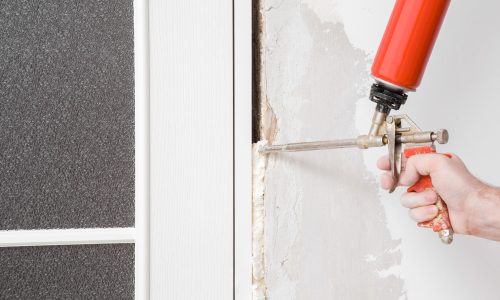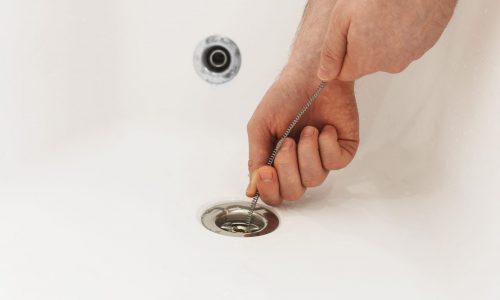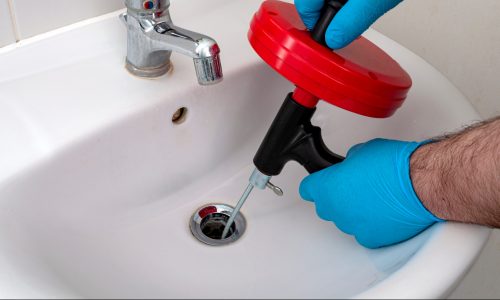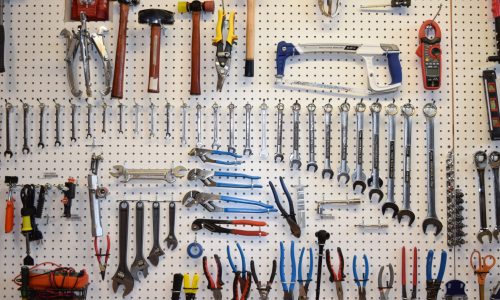The Best Cordless Drill
We looked at the top 13 Cordless Drills and dug through the reviews from 62 of the most popular review sites including and more. The result is a ranking of the best Cordless Drills.

Our Review Process
Don't Waste Your Money is focused on helping you make the best purchasing decision. Our team of experts spends hundreds of hours analyzing, testing, and researching products so you don't have to. Learn more.
Our Picks For The Top Cordless Drills
- 1. AVID POWER LED Light Flexible Shaft Cordless Drill, 22-Piece
- 2. TECCPO Optimized Adjustable Torque Cordless Drill, 33-Piece
- 3. Dewalt 20V MAX On-The-Go Lightweight Cordless Drill & Driver Kit
- 4. BLACK + DECKER Variable Speed Battery Powered Cordless Drill
- 5. Kobalt Double-Ended High Efficiency Cordless Drill
- 6. JUEMEL 20V Fast Charging Electric Cordless Drill Set, 100-Piece
- 7. Hitachi Battery Powered Belt-Hook Cordless Drill
- 8. MILWAUKEE M18 Carpentry Fuel Cordless Drill
- 9. Ryobi ONE+ Adjustable Torque Cordless Drill
- 10. Bosch Portable Soft-Grip Cordless Drill
- 11. Makita XFD10R 18V 2-Speed Extreme Protection Technology Cordless Drill Kit
- 12. Ridgid 2-Finger Trigger Cordless Drill
- 13. Greenworks Keyless Chuck Compact Cordless Drill
With this cordless drill, you'll be able to tackle just about any home improvement project. It utilizes a rechargeable battery, has a lightweight design and can power through a variety of materials, including metal. You can even get the drill in red, pink or blue.
Affordable Price TagNo matter what your budget, this economical cordless drill won't break the bank.
The manufacturers of this cordless drill thought of everything. The battery charges quickly, there's a built-in LED light for better viewing and there are three power modes to choose from. Additionally, the keyless ratcheting chuck is constructed using all-metal, unlike other drills that use less durable plastic.
Lots of AccessoriesIncluded with this cordless drill are a host of accessories, including driver bits, a belt clip and a contractor bag.
This cordless drill packs more than enough voltage for most any job. The powerful motor delivers superior torque, and the chuck keeps the bit secure at any speed. We also found that the ergonomic design makes all that torque easy to control throughout.
Superior TorqueThis drill offers tons of voltage, superior torque and an ergonomic design that's easy to hold.
This cordless drill may be a no-frills model, but it's more than adequate for most household jobs. The 11 clutch settings provide plenty of versatility. It's also one of the lightest drills on the market at 3.4 pounds, making it easy to use in most any space.
Perfect for Household JobsEconomical yet still effective and powerful for most household tasks. Equipped with 11 clutch settings. Very lightweight.
Buying Guide
Even in the most maintenance-free household, a good cordless drill can be a time-saver. In most homes, it’s nothing short of a necessity. From hanging a painting to building an outdoor deck, there’s no job that a drill won’t make easier.
As with any electric tool, there’s a bit of jargon to translate for the non-handyman. But in general, all drills work the same. An electric motor rotates a drill or screwdriver bit, whichever is held in place by a secure clamp called a chuck. The higher the voltage put out by the motor, the higher the torque or circular force applied by the drill. Cordless drills can vary in power greatly from 4 volts to more than 30, but a lot of that power can be overkill unless you’re planning to drill into concrete.
You can change out the bits in your drill by loosening and then tightening the chuck. This used to be done primarily by inserting and turning a chuck key, but keyless chucks are more or less the standard these days. Not only are they easier to use and generally more durable, but you also don’t have to worry about losing the key. The maximum size of your chuck will determine what size bits it can accommodate. 1/2 inch is one of the largest sizes to be found, but 3/8 inch is enough to fit most standard bits.
Needless to say, the main convenience of a cordless drill — other than saving you elbow grease — is its portability. And while the batteries needed to power it can be heavy, they are generally easily rechargeable. Amp hours are a good indicator of how long the battery will last on a charge, though they won’t translate directly into actual hours. Don’t automatically assume a drill will come with a battery, by the way. Many brands manufacture a range of different tools, such as circular saw, drivers and the like, that can use the same battery, which will be sold separately.
Any drill will have clockwise and counterclockwise settings to respectively place and remove screws, but most will also have a variety of clutch settings. The clutch is essentially a safety valve for your drill, disengaging the drive shaft when a certain level of resistance is reached. (For instance, when the screw sinks flush into a wall.) You can increase the setting to drill through thicker materials, like treated wood or concrete, or lower them when screwing into simple drywall.
Why we recommend these cordless drills?
Products Considered
Products Analyzed
Expert Reviews Included
User Opinions Analyzed
Our experts reviewed the top 13 Cordless Drills and also dug through the reviews from 62 of the most popular review sites including and more. The result is a ranking of the best of the best Cordless Drills.
DWYM is your trusted roduct review source. Our team reviews thousands of product reviews from the trusted top experts and combines them into one easy-to-understand score. Learn more.
What to Look For
- Among cordless drills, Lithium-Ion batteries have become the standard. They’re longer-lasting, more efficient, safer for the environment and somewhat lighter than their Nickel Metal Hydride (NiMH) or Nickel Cadmium (NiCd) counterparts — although the high-powered models can still get fairly heavy. They are, however, somewhat more expensive. Some cheaper Lithium-Ion batteries can also overheat in certain conditions. Be sure to check your owner’s manual for storage directions.
- Some battery brands will also have a battery life indicator or “fuel gauge,” which can be helpful. Even more helpful is a spare battery that can be switched out while the other is charging. And if you’re outfitting your garage with more than one tool, consider buying a modular kit with a single battery that can be used in a variety of different devices. It’s a definite money-saver.
- There are a lot of factors that go into the price of a cordless drill, and power is one of the biggest. The amount of voltage put out by the motor will, in general, determine how much torque it can generate. You’ll want to find the drill that is right for the kind of projects you plan to tackle. Do you need a drill to repair your cabinets, hang paintings or assemble the odd piece of furniture? You might be fine with a 7.2-volt drill. Are you going to be drilling into masonry, putting screws into pressure-treated wood or other outdoor jobs? You might want to look at a drill that packs 12 volts or more.
- You’ll find two general types of motors in a cordless drill: brushed and brushless. Without getting into the technical weeds, the brushed motors use tiny “brushes” to transfer power to the rotor, while brushless varieties use magnets. Brushes, like any other motor part, is subject to wear and tear. That’s why you’ll generally find longer warranties on drills with a brushless motor. They’re just more efficient (and of course, somewhat more expensive.)
- Weight and grip can be important factors, especially when you’re using your cordless drill in tight spaces or awkward positions. Most modern drills are configured with the weightiest part — the battery — placed at the bottom of the handle. While that generally makes the drill more stable and easier to use, some prefer a more top-heavy pistol grip that allows them to put more force behind the screw or drill.
More to Explore
No matter how proud you are of your drill, it won’t match up to Bertha. That’s the name given to the world’s largest boring device used to dig the Alaskan Way Viaduct replacement tunnel in Seattle, Washington until its dismantling in 2017. It weighed more than 6,000 tons with a cutting head that was 57.5 feet in diameter.

